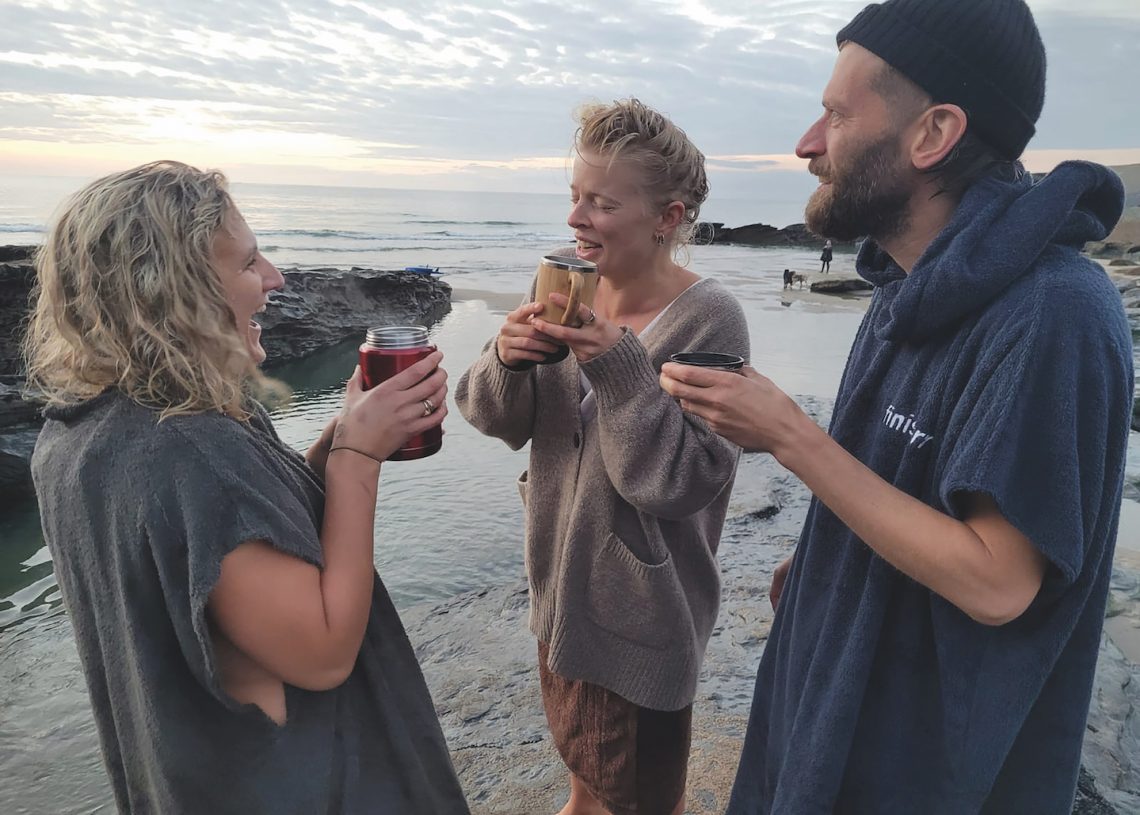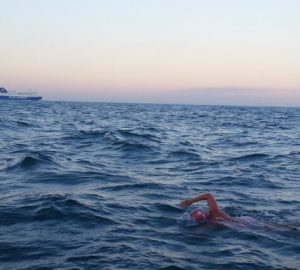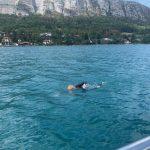
Does a warm drink after a cold swim really help?
A warm drink after a winter swim is top of everyone’s recovery list. But how effective is it in rewarming the body? Ella Foote reports.
One of the most common pieces advice for winter swimming is to have a flask of warm drink ready for after your swim to help you warm up. But does it matter what type of drink is in your flask? And how much heat does a hot drink actually provide in warming us up?
“The simple answer is that it doesn’t provide as much as we might think,” says Dr Heather Massey, a researcher at the University of Portsmouth’s Extreme Environments research group. She’s also a year-round open water swimmer.
““If we delve into the physics and make some basic assumptions, we can demonstrate the likely change in body temperature from consuming a mug of hot drink doesn’t have much impact; increasing deep body temperature by just over 0.1 °C if body temperate is stable.
“If it is falling, as it continues to do just after leaving the water, the small amount of heat donated by the warm drink, may reduce cooling to a very small degree, rather than result in an increased temperature. Either way, the heat donated by the drink has little impact on body temperature.”
Whether you choose tea, coffee or something else, having a hot drink after swimming is about more than heat.
A treat for the hands
“Holding a mug of warm drink helps our fingers and hands feel more comfortable following exposure to the cold,” says Heather. ““Most of our perception of temperature is provided by our skin, our hands are particularly sensitive to cold stimuli. Therefore, wrapping your fingers around a warm mug will improve your thermal comfort.
“Cold water immersion also dehydrates the body, as fluid is shifted away from the skin to a more central location to protect deep body temperature. This has the effect of increasing urine production and leaves the body in a dehydrated state. Therefore, having a drink after your swim and as you rewarm may reduce the amount of dehydration caused by exposure to cold water.
Make it sweet
“A warm drink containing sugars can also be used to support internal heat production mechanisms as the body converts blood sugar into energy, which can be used by our muscles to power shivering. Shivering is the main source of heat production to rewarm the body after a cold-water swim.”
After swimming this winter, take steps to reduce heat loss by getting dry and dressed quickly and then take comfort in your favourite warm drink, whatever that might me. Nothing tastes better after a cool dip than those first few sips from your flask.
To read more tips and advice about cold water swimming, read Jonathon Cowie’s handy guide.








